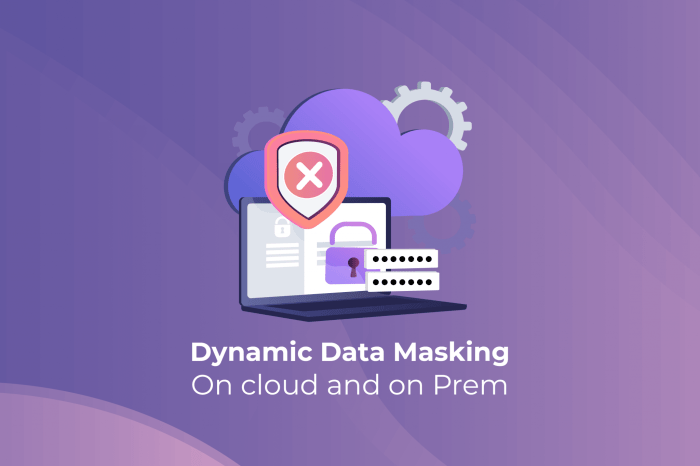Embarking on a journey through the dynamic realm of cloud security, this exploration unveils the pivotal role of certifications in shaping a robust and secure digital landscape. As businesses increasingly migrate to the cloud, the demand for skilled professionals who can safeguard sensitive data and infrastructure has surged. This guide delves into the significance of cloud security certifications, examining their benefits, target audience, and the criteria used to identify the most valuable credentials in the industry.
This detailed analysis will navigate the landscape of top certifications, providing insights into their focus areas, issuing bodies, and the knowledge and skills they validate. From the intricacies of the AWS Certified Security – Specialty to the broad domains covered by the Certified Cloud Security Professional (CCSP), we’ll illuminate the pathways to career advancement and professional recognition. Furthermore, we’ll provide practical advice on exam preparation, recertification, and the ongoing importance of continuous learning in this ever-evolving field.
Overview of Cloud Security Certifications

Cloud security certifications are essential credentials for professionals aiming to validate their knowledge and skills in securing cloud environments. These certifications demonstrate a commitment to best practices and industry standards, enhancing credibility and career prospects in the rapidly evolving cloud security landscape. They serve as a benchmark for expertise, providing assurance to employers and clients.
General Purpose of Cloud Security Certifications
Cloud security certifications primarily serve to validate an individual’s proficiency in cloud security principles, practices, and technologies. They confirm a professional’s ability to design, implement, and manage secure cloud infrastructures. The certifications cover a wide range of topics, including data security, access control, incident response, and compliance. These certifications are crucial in a world where data breaches and cyber threats are increasingly common.
They offer a structured framework for professionals to acquire and demonstrate the necessary skills to protect sensitive information and critical systems.
Benefits of Holding a Cloud Security Certification
Holding a cloud security certification offers numerous benefits for IT professionals. These benefits often translate into tangible advantages in the job market and career progression.
- Enhanced Credibility: Certifications validate expertise, building trust with employers and clients. They provide evidence of a professional’s commitment to cloud security best practices.
- Improved Job Prospects: Certified professionals are often in higher demand. Many organizations prioritize candidates with recognized cloud security credentials.
- Increased Earning Potential: Certifications can lead to higher salaries. According to Global Knowledge’s 2023 IT Skills and Salary Report, cloud security certifications are consistently associated with increased compensation.
- Expanded Knowledge Base: Certification programs provide comprehensive training. They cover a wide range of cloud security topics, enhancing a professional’s overall understanding.
- Career Advancement: Certifications often serve as stepping stones to leadership roles. They demonstrate a commitment to continuous learning and professional development.
Target Audience for Cloud Security Certifications
Cloud security certifications cater to a diverse audience of IT professionals. These certifications are designed to meet the needs of individuals with varying levels of experience and expertise.
- Security Engineers: These professionals are responsible for implementing and managing security controls. Certifications help them stay current with the latest threats and technologies.
- Security Architects: They design and build secure cloud infrastructures. Certifications validate their knowledge of cloud security architecture and design principles.
- Cloud Engineers: Cloud engineers work with cloud platforms and services. Certifications help them understand security implications and implement secure configurations.
- IT Managers and Directors: These leaders need to understand cloud security to make informed decisions. Certifications provide a foundation for strategic planning and risk management.
- Auditors and Compliance Professionals: They assess security controls and ensure compliance with regulations. Certifications help them understand cloud security best practices and compliance requirements.
Identifying Top Cloud Security Certifications
The cloud computing landscape is constantly evolving, and with it, the need for skilled professionals who can secure sensitive data and infrastructure within cloud environments. Selecting the right cloud security certification is crucial for career advancement and demonstrating expertise. This section will delve into the criteria used to evaluate top certifications and identify the most recognized credentials in the field.
Criteria for Determining Top Certifications
Several factors contribute to the ranking of cloud security certifications. These criteria help to objectively assess the value and relevance of each certification within the industry.
- Industry Recognition: The level of respect and acceptance a certification holds within the cybersecurity community and among employers. Certifications from well-established and reputable organizations generally carry more weight.
- Demand: The current market need for professionals holding a particular certification. High demand often translates to better job opportunities and salary prospects.
- Salary Potential: The average salary range for professionals who possess the certification. Salary data is a key indicator of the certification’s value to employers.
- Comprehensive Curriculum: The breadth and depth of knowledge covered by the certification’s training and examination. Certifications that cover a wide range of cloud security topics are generally more valuable.
- Practical Application: The emphasis on real-world skills and knowledge that can be applied to solve cloud security challenges. Certifications that include hands-on labs or practical exercises are highly regarded.
- Vendor Neutrality: Whether the certification focuses on a specific cloud provider (e.g., AWS, Azure, Google Cloud) or provides a vendor-neutral understanding of cloud security principles. Vendor-neutral certifications offer broader applicability.
Top Cloud Security Certifications
Based on the criteria Artikeld above, several certifications consistently rank among the top choices for cloud security professionals. These certifications are recognized for their industry value, demand, and potential for career advancement.
| Certification Name | Issuing Body | Primary Focus | Target Audience |
|---|---|---|---|
| Certified Cloud Security Professional (CCSP) | (ISC)² | Cloud security architecture, design, operations, and service orchestration. | Experienced IT and security professionals with a strong background in information security. |
| AWS Certified Security – Specialty | Amazon Web Services (AWS) | Security best practices on the AWS platform, including data protection, incident response, and compliance. | Individuals with expertise in AWS security services and a solid understanding of cloud security principles. |
| Microsoft Certified: Azure Security Engineer Associate | Microsoft | Implementing security controls, maintaining the security posture, and identifying and remediating vulnerabilities within Azure environments. | Azure administrators, security engineers, and other IT professionals working with Microsoft Azure. |
| Certificate of Cloud Security Knowledge (CCSK) | Cloud Security Alliance (CSA) | Cloud security fundamentals, covering a broad range of topics related to cloud computing and security best practices. | Individuals new to cloud security or those seeking a foundational understanding of cloud security concepts. |
| Google Cloud Certified Professional Cloud Security Engineer | Google Cloud | Designing and implementing secure infrastructure on Google Cloud Platform (GCP), including data protection, identity and access management, and security operations. | Security professionals with experience in GCP and a strong understanding of cloud security principles. |
Detailed Examination of Specific Certifications (Example: AWS Certified Security – Specialty)
The AWS Certified Security – Specialty certification is a highly sought-after credential for cloud security professionals. This certification validates an individual’s expertise in securing the AWS cloud platform. Achieving this certification demonstrates a deep understanding of security best practices and the ability to implement robust security measures within the AWS ecosystem. This section delves into the specific knowledge and skills assessed by the exam, provides a structured study plan, and highlights real-world scenarios where this certification proves invaluable.
Knowledge and Skills Assessed by the AWS Certified Security – Specialty Certification
The AWS Certified Security – Specialty exam assesses a broad range of security-related knowledge and skills. Candidates are expected to demonstrate proficiency in various domains.The exam covers the following key areas:
- Incident Response: Understanding and implementing incident response strategies, including detection, containment, eradication, recovery, and lessons learned.
- Logging and Monitoring: Configuring and analyzing logs and metrics to identify security threats and vulnerabilities. This includes using services like CloudWatch, CloudTrail, and Config.
- Identity and Access Management (IAM): Implementing and managing IAM policies, roles, and users to control access to AWS resources. This also involves understanding and applying the principle of least privilege.
- Data Encryption: Implementing encryption solutions for data at rest and in transit, using services like KMS, CloudHSM, and SSL/TLS.
- Infrastructure Security: Securing network infrastructure, including VPC configuration, security groups, NACLs, and DDoS protection.
- Compliance and Governance: Understanding and implementing security controls to meet compliance requirements, such as PCI DSS, HIPAA, and GDPR. This includes using services like AWS Config and Security Hub.
- Security Automation: Automating security tasks and processes using tools like CloudFormation, Lambda, and Systems Manager.
The exam emphasizes practical application and requires candidates to solve real-world security challenges within the AWS environment. Candidates should be prepared to analyze security scenarios, recommend appropriate solutions, and implement security best practices.
Study Plan for Preparing for the AWS Certified Security – Specialty Exam
A well-structured study plan is crucial for success on the AWS Certified Security – Specialty exam. The following is a recommended approach.
- Assess Your Current Knowledge: Before starting your preparation, evaluate your existing knowledge of AWS security concepts and services. Identify areas where you need to focus your study efforts. Consider taking a practice exam to identify knowledge gaps.
- Utilize Official AWS Resources: Leverage the official AWS documentation, whitepapers, and security best practices guides. These resources provide in-depth information on AWS security services and features. The AWS documentation is a critical resource for understanding the services covered in the exam.
- Enroll in a Training Course: Consider enrolling in an AWS-approved training course. These courses provide structured learning, hands-on labs, and expert guidance. Choose a course that aligns with the exam objectives.
- Hands-on Practice: Gain practical experience by working with AWS security services in the AWS Management Console. Create a personal AWS account (or use a company account if available) and practice configuring and managing security features. Set up virtual labs to simulate real-world scenarios.
- Practice Exams: Take practice exams to assess your readiness and familiarize yourself with the exam format and question types. Analyze your results to identify areas where you need to improve. AWS offers official practice exams.
- Join a Study Group: Collaborate with other individuals preparing for the exam. Sharing knowledge and discussing concepts can enhance your understanding.
- Focus on Real-World Scenarios: Practice applying security concepts to real-world scenarios. Think about how you would address security challenges in various situations. The exam often presents scenario-based questions.
- Review and Reinforce: Regularly review the material and reinforce your understanding. Use flashcards, mind maps, or other study aids to help you retain information.
Consistency and dedication are key to successfully preparing for the AWS Certified Security – Specialty exam. Allocate sufficient time for studying and practice.
Real-World Scenarios Where This Certification Is Valuable
The AWS Certified Security – Specialty certification is highly valuable in various real-world scenarios. It demonstrates the ability to design, implement, and manage secure cloud environments.Here are some examples:
- Securing a Large Enterprise Infrastructure: A certified professional can design and implement a comprehensive security strategy for a large enterprise’s AWS infrastructure. This includes configuring IAM, VPCs, encryption, logging, and monitoring to protect sensitive data and applications. For example, a financial institution using AWS would rely on this expertise to meet regulatory compliance requirements like PCI DSS.
- Incident Response and Threat Management: A certified professional can lead incident response efforts, analyze security events, and implement measures to mitigate threats. They can use services like CloudTrail and CloudWatch to detect and respond to security incidents. This is particularly valuable in organizations that handle sensitive data or face frequent cyberattacks.
- Cloud Migration Projects: When migrating on-premises applications to the cloud, a certified professional can ensure that security is integrated into the migration process. They can design secure architectures, configure security controls, and manage the security posture of migrated applications. For instance, a company migrating its data warehouse to AWS would ensure data encryption and access control.
- Compliance and Governance: A certified professional can help organizations meet compliance requirements by implementing appropriate security controls and demonstrating adherence to regulations like HIPAA or GDPR. This involves configuring services like AWS Config and Security Hub to monitor and assess the security posture. For example, a healthcare provider using AWS for patient data storage would need this expertise to comply with HIPAA.
- Security Automation and DevSecOps: A certified professional can automate security tasks and integrate security into the development lifecycle (DevSecOps). This involves using tools like CloudFormation and Lambda to automate security configurations and processes. This improves efficiency and reduces the risk of human error.
The AWS Certified Security – Specialty certification is a valuable asset for any cloud security professional seeking to advance their career and demonstrate their expertise in securing the AWS cloud. The certification is also a strong indicator of the candidate’s understanding of the security of cloud computing, providing a measurable standard of expertise that can be trusted.
Detailed Examination of Specific Certifications (Example: Certified Cloud Security Professional (CCSP))

The Certified Cloud Security Professional (CCSP) certification is a globally recognized credential offered by (ISC)², designed for IT and information security professionals who are responsible for securing cloud environments. This certification validates an individual’s expertise in cloud security architecture, design, operations, and service orchestration. It’s a valuable credential for those looking to advance their careers in cloud security.
Domains Covered by the CCSP Certification
The CCSP certification covers a broad range of cloud security topics, structured into six key domains. These domains reflect the comprehensive nature of cloud security and the various aspects professionals must understand. The domains are designed to assess a candidate’s knowledge and skills in cloud security best practices.
- Cloud Concepts, Architecture, and Design: This domain focuses on understanding cloud computing concepts, cloud service models (IaaS, PaaS, SaaS), deployment models (public, private, hybrid, community), and cloud architecture principles. It includes topics like cloud reference architectures, cloud computing characteristics, and the implications of different cloud models.
- Cloud Data Security: This domain addresses the security of data in the cloud. It covers data loss prevention (DLP), data encryption, data classification, data retention, and data privacy regulations. It also emphasizes the importance of data lifecycle management and data governance strategies.
- Cloud Security Operations: This domain focuses on the operational aspects of cloud security. It includes topics such as incident response, business continuity and disaster recovery (BCDR), logging and monitoring, vulnerability management, and security automation.
- Cloud Application Security: This domain covers the security of cloud-based applications. It includes topics like secure software development lifecycle (SSDLC), application security testing, API security, and the security of containerized applications.
- Cloud Security Governance, Risk, and Compliance: This domain addresses the governance, risk management, and compliance aspects of cloud security. It includes topics such as cloud security policies, risk assessment, compliance frameworks (e.g., NIST, ISO), and legal and regulatory requirements.
- Cloud Identity and Access Management (IAM): This domain focuses on managing identities and access to cloud resources. It includes topics like identity federation, multi-factor authentication (MFA), access control models, and privileged access management.
Differences Between CCSP and Other Cloud Security Certifications
The CCSP certification distinguishes itself from other cloud security certifications through its vendor-neutral approach and its focus on a broad range of cloud security topics. While other certifications might focus on specific cloud platforms or technologies, CCSP provides a more general and comprehensive understanding of cloud security principles.
Here’s a comparison with some other popular cloud security certifications:
| Certification | Focus | Vendor Affiliation | Target Audience |
|---|---|---|---|
| AWS Certified Security – Specialty | AWS cloud security services and best practices. | Amazon Web Services (AWS) | Individuals with experience securing AWS environments. |
| Microsoft Certified: Azure Security Engineer Associate | Microsoft Azure cloud security services and best practices. | Microsoft Azure | Individuals with experience securing Azure environments. |
| CompTIA Cloud+ | Cloud computing fundamentals and vendor-neutral cloud security concepts. | CompTIA | IT professionals with a basic understanding of cloud computing. |
| CCSP | Broad, vendor-neutral cloud security principles and practices. | (ISC)² | IT and information security professionals with experience in cloud security. |
The CCSP is often considered a more advanced certification compared to CompTIA Cloud+, requiring a higher level of experience and understanding. Compared to vendor-specific certifications like the AWS Certified Security – Specialty or the Microsoft Certified: Azure Security Engineer Associate, the CCSP provides a more holistic view of cloud security, applicable across various cloud platforms. However, it is essential to know that vendor-specific certifications can provide a more in-depth knowledge of specific platforms.
Resources Recommended for CCSP Preparation
Effective preparation for the CCSP certification requires a combination of study materials and practical experience. The following resources are recommended to help candidates prepare for the exam.
- Official (ISC)² CCSP CBK (Common Body of Knowledge): This is the official study guide and reference for the CCSP exam. It covers all the domains and topics in detail.
- CCSP Study Guides: Many third-party study guides provide comprehensive coverage of the CCSP domains, often with practice questions and exam simulations.
- Online Courses: Online platforms offer CCSP preparation courses, including video lectures, practice exams, and interactive exercises. Examples include:
- (ISC)² Official CCSP Training
- Cloud Academy CCSP Certification Training
- Infosec Institute CCSP Boot Camp
- Practice Exams: Regularly taking practice exams is crucial for assessing your knowledge and identifying areas for improvement.
- Cloud Security Blogs and Articles: Staying up-to-date with the latest cloud security trends and best practices is essential. Reading industry blogs and articles helps in this regard.
- Hands-on Experience: Practical experience in cloud security is highly valuable. Working with cloud platforms and security tools enhances understanding and retention.
Comparing Cloud Security Certifications
Choosing the right cloud security certification can significantly impact your career trajectory. The best choice depends on your current skills, desired role, and specific cloud platform focus. This section provides a comparative analysis of two popular certifications to assist in making an informed decision.
Certification Focus and Difficulty Comparison
Two prominent cloud security certifications, the AWS Certified Security – Specialty and the Certified Cloud Security Professional (CCSP), offer distinct approaches to cloud security expertise. The AWS certification is highly focused on Amazon Web Services (AWS) security, while the CCSP provides a broader, vendor-neutral understanding of cloud security principles.
- AWS Certified Security – Specialty: This certification validates advanced skills in securing the AWS cloud platform. It emphasizes hands-on experience with AWS security services and best practices. The difficulty level is considered advanced, requiring significant practical experience with AWS services and a strong understanding of security concepts.
- Certified Cloud Security Professional (CCSP): The CCSP certification focuses on a comprehensive understanding of cloud security across various cloud platforms. It covers a wide range of security domains, including cloud architecture, data security, and compliance. The difficulty level is also considered advanced, requiring a broad understanding of cloud security principles and best practices.
Certification Comparison Table
A comparison table summarizes key aspects of the two certifications:
| Certification | Provider | Prerequisites | Exam Format | Cost (Approximate) |
|---|---|---|---|---|
| AWS Certified Security – Specialty | Amazon Web Services (AWS) | AWS Certified Cloud Practitioner or equivalent knowledge; 2+ years of hands-on experience securing AWS workloads. | 65 multiple-choice or multiple-response questions; 170 minutes. | $300 |
| Certified Cloud Security Professional (CCSP) | (ISC)² | Minimum of 5 years cumulative paid work experience in IT, of which at least 3 years must be in one or more of the 6 domains of the CCSP CBK. A 4-year college degree can be substituted for one year of experience. | 125 multiple-choice questions; 3 hours. | $749 |
Importance of Alignment with Career Goals
Selecting the right certification depends on your career objectives.
- If your focus is on a career within the AWS ecosystem, the AWS Certified Security – Specialty is an excellent choice. It demonstrates expertise in securing AWS environments, which is highly valued by organizations using AWS.
- If you aim for a vendor-neutral understanding of cloud security principles and wish to work with various cloud platforms, the CCSP is a better fit. This certification is recognized globally and opens doors to roles requiring a broader understanding of cloud security best practices.
For example, a security engineer focused on securing AWS environments would greatly benefit from the AWS Certified Security – Specialty, while a security architect working across multiple cloud providers would find the CCSP more relevant.
Certification Providers and Accreditation Bodies
Understanding the landscape of cloud security certifications requires a look at the organizations that develop and administer them. These entities play a crucial role in establishing and maintaining the standards of cloud security expertise, ensuring that professionals possess the necessary knowledge and skills to protect cloud environments. Accreditation bodies further validate the credibility of these providers, adding an extra layer of assurance for both professionals and employers.
Leading Organizations Offering Cloud Security Certifications
Several organizations have emerged as leaders in providing cloud security certifications. These organizations often specialize in different aspects of cloud security, from general cloud concepts to specific vendor platforms. Their certifications serve as benchmarks for industry professionals and are widely recognized by employers.
- Cloud Security Alliance (CSA): The CSA is a non-profit organization that offers the Certificate of Cloud Security Knowledge (CCSK). This foundational certification is widely recognized and focuses on cloud security principles and best practices. The CSA is also involved in research and education to promote cloud security awareness.
- (ISC)²: (ISC)² is a global non-profit organization known for its information security certifications. The Certified Cloud Security Professional (CCSP) certification is a popular choice, focusing on advanced cloud security concepts and practices. (ISC)² certifications are highly regarded and often sought after by employers.
- Amazon Web Services (AWS): AWS provides a range of certifications specific to its cloud platform. The AWS Certified Security – Specialty certification validates expertise in securing AWS environments. These certifications are valuable for professionals working with AWS services.
- Microsoft: Microsoft offers certifications focused on its cloud platform, Azure. While not solely dedicated to security, many Azure certifications, such as those related to security operations and identity and access management, include significant security components.
Importance of Accreditation and Accreditation Bodies
Accreditation is a critical aspect of ensuring the quality and credibility of certification providers. Accreditation bodies independently assess certification programs and providers to verify that they meet established standards for content, delivery, and assessment. This process adds an extra layer of assurance for professionals and employers, ensuring that the certifications are valid and reliable.
- ANSI/ISO/IEC 17024: This is an internationally recognized standard for personnel certification bodies. Accreditation to this standard signifies that a certification provider operates with a high level of quality and integrity. Many leading certification providers, including (ISC)², are accredited to this standard. Accreditation bodies, like the ANSI National Accreditation Board (ANAB), are responsible for assessing and accrediting certification providers against this standard.
- The Benefits of Accreditation: Accreditation provides several key benefits, including:
- Increased Credibility: Accreditation validates the rigor and quality of the certification program.
- Industry Recognition: Accredited certifications are often more widely recognized and valued by employers.
- Continuous Improvement: Accreditation requires certification providers to regularly review and update their programs to maintain quality.
Role of Organizations in Maintaining Cloud Security Standards
Certification providers and accreditation bodies play a crucial role in maintaining the standards of cloud security. They contribute to the overall security posture of cloud environments by setting benchmarks for knowledge and skills, promoting best practices, and ensuring that professionals are equipped to address evolving security threats.
- Developing and Updating Certification Programs: Certification providers continuously update their programs to reflect the latest threats, technologies, and best practices in cloud security. This ensures that certified professionals have the most current knowledge and skills.
- Promoting Best Practices: Certification programs often incorporate industry best practices and guidelines, such as those from the Cloud Security Alliance (CSA) and the National Institute of Standards and Technology (NIST). This helps to standardize security practices across different organizations.
- Supporting Professional Development: Certification providers offer training and resources to help professionals prepare for certifications and stay up-to-date on the latest cloud security trends. This continuous learning is essential for maintaining a strong security posture.
- Example: The (ISC)² CCSP certification is regularly updated to reflect changes in cloud security threats and technologies. The certification domains, such as Cloud Data Security and Cloud Security Architecture, are reviewed and revised to ensure they remain relevant and aligned with industry best practices. This continuous improvement helps to maintain the value and credibility of the certification.
Preparing for Cloud Security Certification Exams
Preparing for cloud security certification exams requires a structured approach, encompassing effective study strategies, a well-defined schedule, and access to quality practice resources. Success depends on consistent effort and a deep understanding of the exam objectives. This section Artikels key elements for exam preparation.
Effective Study Strategies for Cloud Security Certification Exams
Several study strategies can significantly improve your chances of success on cloud security certification exams. Employing a variety of techniques can cater to different learning styles and ensure comprehensive knowledge retention.
- Understand the Exam Objectives: Thoroughly review the official exam objectives provided by the certification provider. This is the foundation of your study plan. Each objective should be broken down into manageable topics.
- Create a Study Plan: Develop a realistic and structured study plan. Allocate time for each topic based on its complexity and your existing knowledge.
- Utilize Diverse Learning Resources: Leverage a combination of resources such as official study guides, online courses, practice exams, and hands-on labs.
- Hands-on Practice: Gain practical experience through hands-on labs and exercises. Cloud platforms often provide free tiers or trial periods to facilitate this. This reinforces theoretical knowledge and improves practical skills.
- Take Practice Exams: Regularly take practice exams to assess your knowledge and identify areas for improvement. Analyze your results to pinpoint weaknesses.
- Review and Reinforce: Regularly review previously covered material to reinforce your understanding. Spaced repetition is an effective technique.
- Join Study Groups or Forums: Collaborate with other candidates to share knowledge, discuss challenging concepts, and stay motivated.
- Focus on Understanding, Not Just Memorization: Aim to understand the underlying concepts rather than simply memorizing facts. This will enable you to apply your knowledge to real-world scenarios.
- Simulate Exam Conditions: When taking practice exams, simulate the actual exam environment to get accustomed to the format, time constraints, and pressure.
- Stay Updated: Cloud technologies evolve rapidly. Ensure your study materials are current and reflect the latest developments.
Design a Study Schedule Template for a Specific Certification
A well-structured study schedule is essential for organized preparation. The following template provides a framework that can be customized for a specific certification, such as the AWS Certified Security – Specialty.
Study Schedule Template
Certification: AWS Certified Security – Specialty
Total Study Time: [e.g., 8 weeks, 16 weeks]
Weekly Schedule:
| Day | Time | Topic | Activities | Resources |
|---|---|---|---|---|
| Monday | [e.g., 7:00 PM – 9:00 PM] | Identity and Access Management (IAM) | Read study guide chapter, complete practice questions | Official AWS documentation, Study guide chapter 3 |
| Tuesday | [e.g., 7:00 PM – 9:00 PM] | Detective Controls (CloudTrail, CloudWatch) | Watch online course videos, complete lab exercises | A Cloud Guru course, AWS CloudTrail console |
| Wednesday | [e.g., 7:00 PM – 9:00 PM] | Infrastructure Security | Review notes, participate in study group discussion | Study notes, AWS Security forums |
| Thursday | [e.g., 7:00 PM – 9:00 PM] | Data Protection (Encryption, Key Management) | Complete practice exam | Practice exam provider |
| Friday | [e.g., 7:00 PM – 9:00 PM] | Incident Response | Review weak areas, review study guide | Study guide chapter 5, practice questions |
| Saturday | [e.g., 10:00 AM – 1:00 PM] | Practice Exam & Review | Take a full-length practice exam, analyze results | Practice exam provider |
| Sunday | [e.g., Flexible] | Review & Catch-up | Review all topics, catch up on missed activities | All resources |
Key Considerations:
- Time Allocation: Adjust the time allocated to each topic based on its complexity and your existing knowledge.
- Breaks: Schedule regular breaks to avoid burnout.
- Flexibility: Be prepared to adjust the schedule as needed.
- Consistency: Stick to the schedule as consistently as possible.
- Progress Tracking: Track your progress and celebrate milestones.
Practice Exam Resources and Their Features
Practice exams are a critical component of exam preparation. They simulate the actual exam environment and provide valuable feedback on your readiness. Several resources offer practice exams with varying features.
- Official Certification Provider Practice Exams: The certification provider often offers official practice exams. These are the most accurate representation of the actual exam content and format.
- Features: Authentic questions, detailed explanations, and performance analysis.
- Example: AWS offers official practice exams for its certifications.
- Online Learning Platforms: Platforms such as A Cloud Guru, Udemy, and Coursera provide practice exams as part of their course offerings.
- Features: Large question banks, detailed explanations, and progress tracking.
- Example: A Cloud Guru provides practice exams for various cloud certifications, including AWS, Azure, and Google Cloud.
- Third-Party Practice Exam Providers: Companies specializing in exam preparation offer practice exams that simulate the actual exam.
- Features: Realistic exam simulations, detailed explanations, and performance analysis. They often provide a variety of question types.
- Example: Whizlabs and Tutorials Dojo are examples of third-party practice exam providers.
- Books and Study Guides: Many study guides include practice questions and full-length practice exams.
- Features: Comprehensive coverage of exam topics, practice questions, and explanations.
- Example: Sybex and Wiley publish comprehensive study guides for various certifications that include practice exams.
Maintaining Cloud Security Certification
Maintaining a cloud security certification is a crucial aspect of a cybersecurity professional’s career. The cloud landscape evolves rapidly, with new threats and technologies emerging constantly. Therefore, staying certified ensures that professionals remain current with the latest best practices, security protocols, and industry standards. This ongoing commitment to professional development is essential for validating expertise and demonstrating a dedication to protecting valuable cloud-based assets.
Requirements for Recertification
Recertification requirements vary depending on the specific cloud security certification. However, a common theme is the need to demonstrate continued competency and knowledge of the evolving cloud security landscape. This typically involves a combination of ongoing education, professional experience, and, in some cases, passing a recertification exam.
- Continuing Education Credits (CEUs): Many certifications require the accumulation of CEUs over a specific period (usually every one to three years). These credits can be earned through various activities, such as attending webinars, participating in conferences, completing online courses, or reading relevant publications. The specific number of CEUs required varies depending on the certification and the issuing organization. For instance, (ISC)² certifications, such as the CCSP, require candidates to earn 90 CPE (Continuing Professional Education) credits every three years.
- Recertification Exams: Some certifications require candidates to retake the initial exam or pass a shorter, more focused recertification exam. This is a direct assessment of the individual’s current knowledge and skills. AWS Certified Security – Specialty, for example, requires passing the same exam again to maintain the certification.
- Professional Experience: Demonstrating active involvement in the field of cloud security is often a key requirement. This might involve providing evidence of ongoing employment in a relevant role, participation in cloud security projects, or contributions to the cloud security community.
- Membership and Fees: Maintaining membership with the certifying organization and paying associated fees is often a prerequisite for recertification. This helps support the organization’s efforts to maintain the certification program and provide resources to its members.
Importance of Continuous Learning
Continuous learning is paramount in cloud security. The cloud environment is dynamic, with new vulnerabilities, attack vectors, and security solutions emerging constantly. Without consistent learning, certified professionals risk becoming outdated and ineffective in their roles. Staying current with the latest threats and technologies enables professionals to:
- Adapt to New Threats: Cloud security threats are constantly evolving. Continuous learning equips professionals with the knowledge to identify and mitigate emerging threats, such as ransomware attacks, data breaches, and misconfigurations.
- Implement Best Practices: The cloud security landscape is constantly evolving with new best practices and standards. Continuous learning ensures that professionals are aware of and can implement the most effective security measures.
- Utilize New Technologies: New cloud security technologies and tools are constantly being developed. Staying up-to-date allows professionals to leverage these technologies to improve their security posture.
- Enhance Career Opportunities: Demonstrating a commitment to continuous learning enhances career prospects. It shows employers that a professional is dedicated to staying current and is willing to invest in their professional development.
Professional Development Activities
Several professional development activities can help maintain cloud security certification status. Engaging in these activities demonstrates a commitment to continuous learning and ensures that certified professionals remain at the forefront of the field.
- Attending Conferences and Webinars: Participating in industry conferences, such as RSA Conference or Black Hat, and attending webinars on cloud security topics provides valuable insights into the latest trends, technologies, and best practices. These events often offer CEU credits.
- Completing Online Courses and Training Programs: Numerous online platforms offer courses and training programs on cloud security topics. These courses can cover a wide range of subjects, from fundamental concepts to advanced techniques. Organizations like Coursera, Udemy, and Cloud Academy provide training aligned with specific certifications.
- Reading Industry Publications and Blogs: Staying informed about the latest developments in cloud security can be achieved by reading industry publications, such as
-CSO* and
-Dark Reading*, and following reputable security blogs. - Obtaining Advanced Certifications: Pursuing advanced certifications, such as the Certified Information Systems Security Professional (CISSP) or the Certified Cloud Security Professional (CCSP), demonstrates a commitment to professional development and can often contribute to recertification requirements for other certifications.
- Participating in Industry Events: Presenting at conferences, participating in industry panels, or volunteering in cloud security-related activities helps deepen knowledge and reinforces concepts. This active engagement also offers opportunities for networking and learning from peers.
- Contributing to Open Source Projects: Contributing to open-source security projects allows professionals to gain practical experience and contribute to the security community. This can be particularly valuable for understanding and addressing real-world security challenges.
- Mentoring and Training Others: Sharing knowledge by mentoring junior colleagues or providing training sessions is a great way to reinforce one’s understanding of cloud security principles and practices.
Closing Summary

In conclusion, understanding the top cloud security certifications is paramount for IT professionals and security engineers seeking to thrive in the cloud era. This guide has provided a comprehensive overview of the certifications, the value they bring, and the resources available to support your journey. By carefully selecting the right certification and committing to continuous learning, you can equip yourself with the expertise to navigate the complexities of cloud security and achieve your career aspirations.
The cloud is constantly evolving, and so should your knowledge. Embrace the challenge and secure your future in the cloud.
Q&A
What is the primary purpose of cloud security certifications?
Cloud security certifications validate an individual’s knowledge and skills in securing cloud environments, protecting data, and mitigating risks.
Who is the target audience for these certifications?
The target audience includes IT professionals, security engineers, cloud architects, and anyone involved in the design, implementation, or management of cloud security solutions.
How long does it typically take to prepare for a cloud security certification exam?
Preparation time varies depending on the certification, your existing knowledge, and study habits. However, it generally ranges from several weeks to a few months of dedicated study.
What are the key benefits of holding a cloud security certification?
Benefits include enhanced career prospects, increased earning potential, industry recognition, and validation of your expertise in cloud security.


